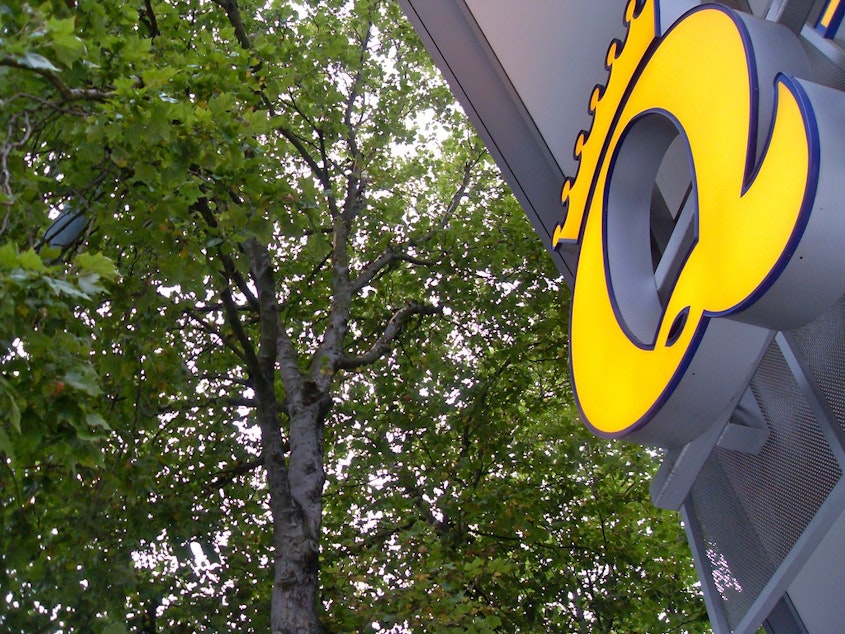Kroger and Albertsons are selling hundreds of stores. What we know, and don't

When Kroger announced plans to acquire Albertsons nearly a year ago, the big question was: Which stores will be closed in the merger process?
When two giant companies merge, federal antitrust laws could kick in, prompting the companies to sell off some stores in order to please the Federal Trade Commission. That's currently the plan for Kroger and Albertsons. On Friday, the two companies announced an agreement to sell 413 stores to C&S Wholesale Grocers, including 104 in Washington state. The companies added that no stores will close as a result of the merger.
“Because we are still in the regulatory process, we are not in a position at this time to share the specific locations that will be divested to continue serving the community under a different owner," a Kroger spokesperson said in a statement. "We anticipate being able to share these details closer to closing.”
RELATED: A grocery store merger made this Bellingham neighborhood a food desert. Are others next?
Sponsored
“We have raised alarms about the proposed Kroger/Albertsons merger from the very beginning,” said UFCW Local 3000 president Faye Guenther. “News of a possible deal with C&S to buy hundreds of stores as part of the proposed merger in no way reduces those alarms. Indeed, in many respects this announcement raises the level of concern for our members.”
With this latest development, is the acquisition a done deal? Is New Hampshire based C&S (which owns grocery brands Piggly Wiggly and Grand Union) a strong buyer that will satisfy the Federal Trade Commission for clearance?
KUOW spoke with University of Washington antitrust law professor Douglas Ross for his thoughts. The interview has been edited for brevity and clarity.
Why do Albertsons and Kroger need to divest stores?
Sponsored
If two grocery chains were to merge, and they had no overlapping stores, there wouldn't be much of an antitrust issue. The problem is when two chains merge that do compete with each other. So if QFC, or its parent Kroger, is merging with Albertsons, which owns Safeway, you end up eliminating competition between QFC and Safeway in our local market and different banners in other local markets. And that elimination of competition means you can't rely on those two chains to compete with each other to lower prices or deliver better quality to consumers.
What they’re trying to do is sell stores in areas where they overlap, where they compete, so they can make a credible argument to the Federal Trade Commission that the sold stores, now to be owned by C&S will be viable, will continue to operate, and will do so under a grocery banner, and continue to provide competition to Kroger after it acquires Albertsons.
Folks fear a repeat of 2015, when local chain Haggen bought 146 stores as Albertsons acquired Safeway. But less than a year in, Haggen filed for bankruptcy and Albertsons bought back most of the stores. Is C&S a credible buyer?
C&S is fundamentally in the grocery supply business. In recent years they’ve started getting into the retail grocery spaces. They don’t have any retail grocery outlets in the state of Washington. A couple of years ago, when the Federal Trade Commission ultimately approved a much smaller grocery merger elsewhere in the country, C&S stepped in as the buyer of a number of stores that were divested there, but that divestiture was much, much smaller than this one. It’s a really different thing to buy a dozen stores versus buying 400-plus stores.
What else stood out to you about this deal?
Sponsored
The stores that Kroger and Albertsons will sell, which are unionized stores, will go to a company that will also deal with unionized employees. And they've made a big deal of that in the press announcement. I think that's something that people will be very interested in. Traditionally, that would not have been much of an antitrust issue. But today's Federal Trade Commission, and some of these state agencies are very interested in labor issues. And the sellers here understand that this is important to the FTC, they also probably understand it's important to their own employees.
What’s next? Are there more steps ahead?
There are. The companies right now are going through a process where they're producing material to the FTC, and presumably to a number of states, they're doing so under a compelled process where they must provide material. They also presumably are submitting executives and maybe others to depositions. And they go through this entire process. And when that is over, then they are free to close the deal. Unless the FTC sues to stop them.
The FTC will know when that process ends. And the companies actually can't close their deal until 30 days after all that information has been given to the Federal Trade Commission. And during those 30 days, the FTC can file a lawsuit to block it, if they think that's what they ought to do.
RELATED: Are we nearing the end of the grocery store experience?




